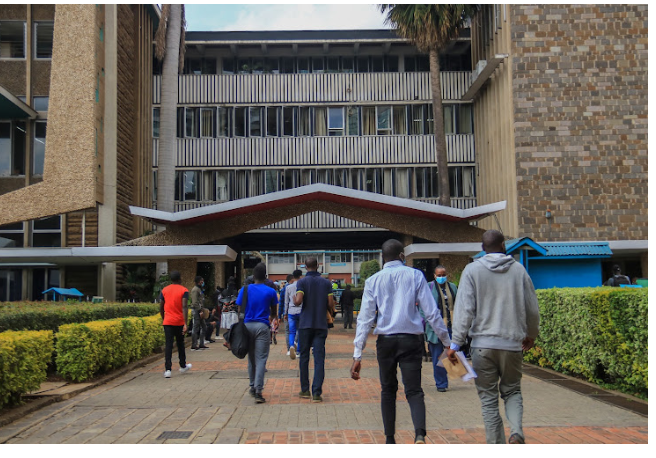The current electoral college system used by university students to elect their leaders is to blame for the erosion of democracy.
The delegates system allows students to elect delegates who form an electoral college and later vote in leaders.
The system was first implemented in the country in December, 2016 after Aden Duale fronted the amendment of the Universities Act 2012.
The amendment was meant to reduce the number of times leaders could be elected. Currently, leaders can be in office for only two terms.
Embakasi East MP Babu Owino noted that the amendment might have been an attempt to deter him from vying again, but it’s currently affecting most students.
“[I believe] the move was probably meant to punish me,” Owino told the Star.
In the current system, presidential aspirants and their running mates need to be of a different gender.
This system has also seen the shifting of responsibilities and the merging of other positions.
“The catering and accommodation department was scrapped and the duties were placed under the deputy president or vice-chairperson,” Omwoyo Maranga told the Star.
Maranga further noted that the sports and entertainment position was merged into one position, and mandated to be part of the finance committee.
Among the first leaders to be elected using this system were Anne Mvurya (University of Nairobi), Clinton Owino (Multimedia University), and the most recent, Marco Laboso (Daystar University).
Clinton tied with 28 votes against his close competitor Elly Kevin prompting a rerun.
The second round saw Clinton clinch 32 votes against Kevin’s 24 votes.
Clinton was later declared MMU president.
At Daystar University, Laboso scooped 34 votes out of the 36 delegates who voted. One delegate failed to vote and the other was declared a spoilt vote.
He is the current President of the Daystar University Students Association (DUSA.)
“This system has denied students their power to vote but we have to change our campaign tactics to suit delegates,” Laboso told the Star.
Anne Mvurya became the first female president at UoN after garnering 24 votes out of a possible 36, with Samuel Ayoma, her closest rival, getting a paltry eight.
The most recent elections at Jomo Kenyatta University of Agriculture and Technology saw Mwangi Mark win the presidential seat.
He clinched the seat unopposed after other aspirants were disqualified for allegedly having retakes and ‘supplementary units,’ among other reasons.
Babu Owino was the last SONU chairman elected by popular vote at UoN.
Owino was elected chairman three times: 2011, 2014, and 2015.
The current MP attained over 18,000 votes beating Mike Jacobs by over 16,000 votes.
The current ANC head of ICT and digitisation Nathaniel Mong’are also beat the odds to become the first second-year student to clinch the most coveted secretary-general position at Moi University.
Mong’are secured the post after garnering 5,800 votes, defeating all his other competitors who could not attain 500 votes each.
The Electoral College system as applied in the US works like this: when Americans go to the polls in the presidential elections, they vote for a group of officials who comprise the Electoral College.
The Electoral College meets every four years, a few weeks after election day, to choose the president and vice-president.
The number of electors from each state is roughly in line with the size of its population.
Each state gets as many electors as it has lawmakers in the US Congress (representatives in the House and senators).
Other countries with Electoral College system include Burundi, Estonia, India, Kazakhstan, Madagascar, Myanmar, Pakistan, Trinidad and Tobago, and Vanuatu.
Source : The Star
